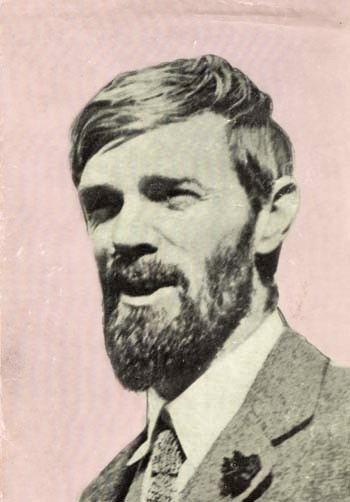
D. H. Lawrence became engaged to Louie Burrows in December of 1910, six days before his mother’s death and shortly after he had ended his relationship with Jessie Chambers. A family friend since his school years, Jessie was also the model for the character of Miriam Leivers in Paul Morel, the blueprint for the autobiographical novel Sons and Lovers. Louie had seen Lawrence’s relationship with Jessie, and observed that the seriousness of their conversations caused Lawrence to “become less sportive in J’s presence,” and their talk of art seemed “strange and showy.” In hindsight, Lawrence would refer to the year of 1911, when this letter was written, as the “sick year,” when after his mother’s death “the world began to dissolve.” Shortly thereafter he stopped teaching at Davidson Road School due to health complications and broke off his engagement with Louie in February of 1912.
Davidson Rd Boys School, South Norwood, S. E.
16 May 1911
My dear Lou,
How strange!—it makes me laugh. You imagine I imagine you are mean—how mean of me! I could never mean that you are mean or even slightly mercenary, for I know,—need I tell you so, that you’re generous more than ordinary. How could you think that I should sink to such a depth of base suggestion?—it makes me blush and crimson flush to be the object of such a question.
The idea is, my dear, just mad enough to send me dotty: —whoa!
But what ever made you think such things? I never for a moment doubt your splendid generosity—nor doubt you in any way except to wonder whether I shall ever get you: which is, of course, only the doubt of the baby in the Pear’s Soap bath. You are very fantastical, my dear, in your imaginings: they really amuse me, like Alice in Wonderland.
‘Twas brillig, and the slithy toves
Did gyre and gimble in the wabe’
No, but I am so Hamletty—I am so confoundedly and absurdly Hamletty, it’s enough to make you sick. When I begin to rant in the ‘To be or not to be’ style, you should say ‘Hello, he’s off again’, and wait for the rhyme which rings conclusion if not reason. Sithee? And if I say about seeing me with J[essie], why I only mean for half an hour: and doubtless, soon or late, you will see me with J for half an hour: and doubtless you won’t mind a scrap.
Do lay this to your gentle feminine soul: that, in the opinion of the lady in the Chapter House, I am surely mad. Say to yourself, on lots of occasions that will arrive: ‘Well, the lady in the Chapter House says he’s mad……’ You can fill in the dots.
If you can cook you will be perfect: two cakes! I shall keep henceforth a list to appraise and condemn you by. ‘My wife can cook thirty seven puddings and fifteen different cakes: all plain roasts, all haricot stews, curries etc etc etc -.’ Kindly keep me informed, so that I can compare you with other men’s wives, to my renown.
I, for my part, am going to struggle like the devil to establish my health. A thin blade stands best, goes deepest, and cuts nearest: but if you get too thin in the blade you double up. I proceed to substantiate. Either I shall become a ‘garçon solide’, or else a mere blessed wraith.
I didn’t write any Paul last night – went to bed quite good and early.
It’s a very close day today.
I don’t feel like undertaking Ordeals, do you?
I’m supposed to be teaching composition at this minute. I’ll now recite the ‘Ode to Duty’, to get my muscle up, and then I’ll fall to.
Addio—I wish it were holidays.
Addio, carissima D. H. Lawrence
From The Letters of D. H. Lawrence. Edited by James T. Boulton. Cambridge: Cambridge University Press, 1979.
FURTHER READING
Read an article on how Paul Morel became Sons and Lovers.


